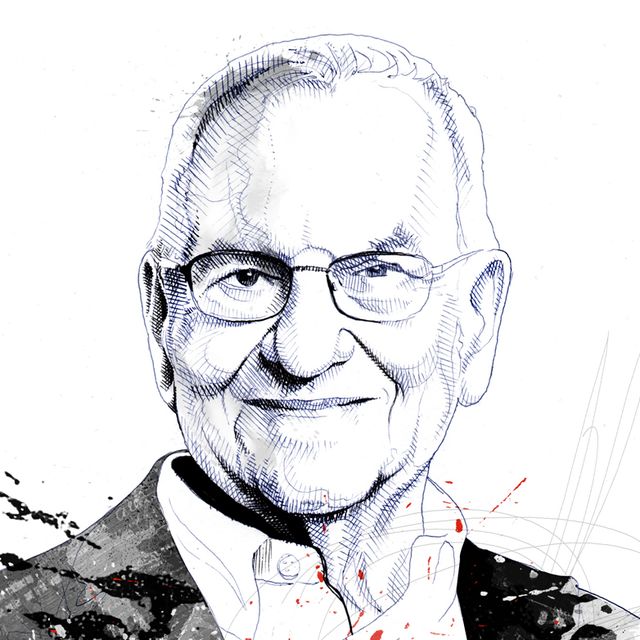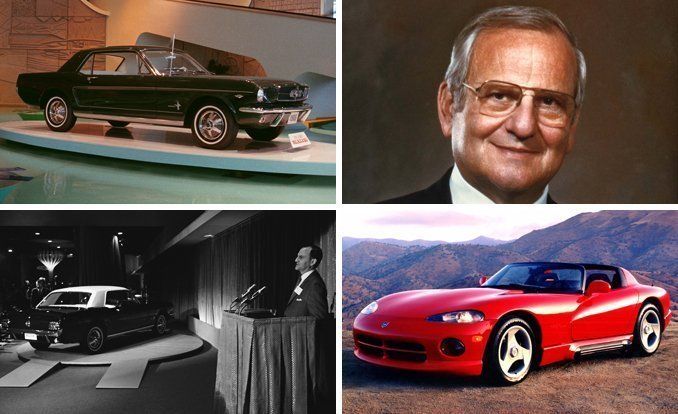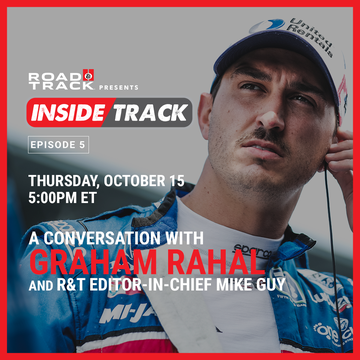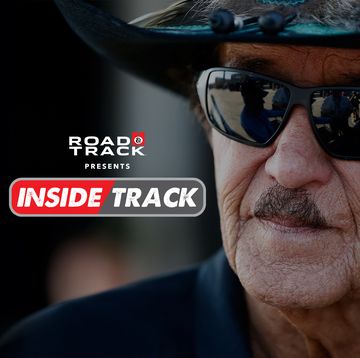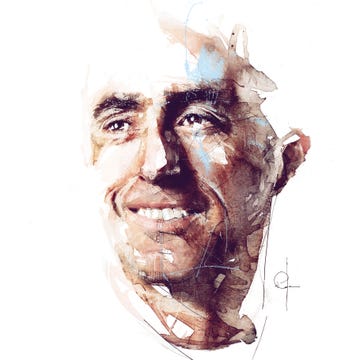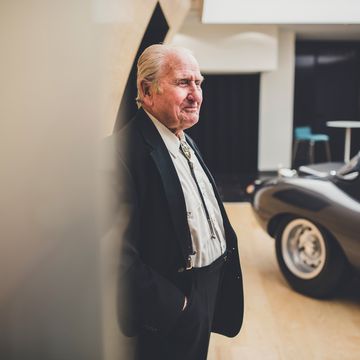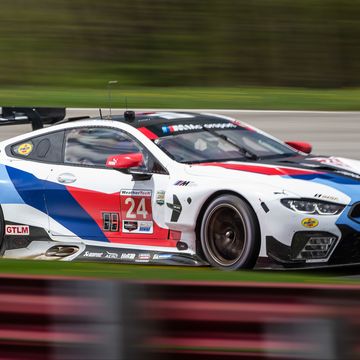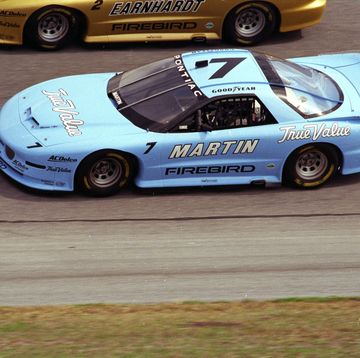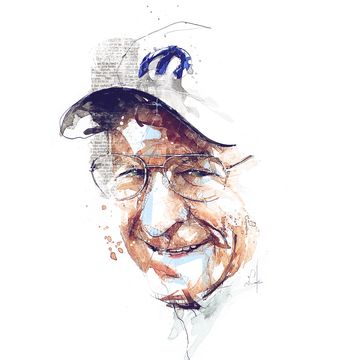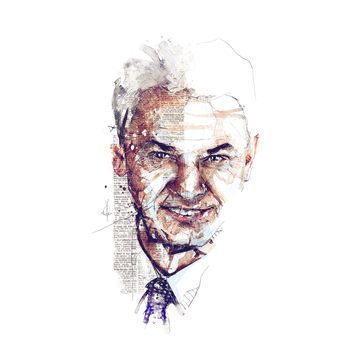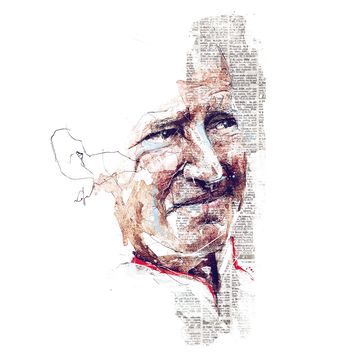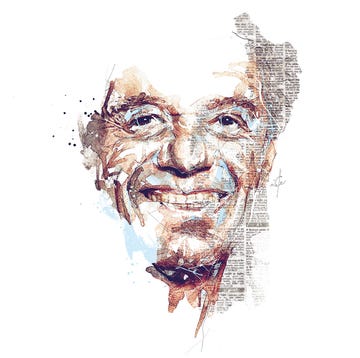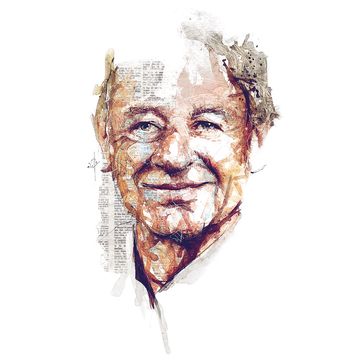C/D: What's in your garage these days?
LI: Carroll Shelby used to tease me with, I have the first Shelby in my garage." I'd respond, "Well, I have the first Viper in my garage," and I still do. It's red, by the way. I also have a 1982 woody convertible K-car that I use to drive around locally. I have the very first of only 45 of the Iacocca Silver 45th Anniversary Edition Mustangs, called the Iacocca. It's the only car I ever put my name on. Of course, I always have the most current Town & Country minivan. Plus I've got a Jeep and the "Yellow Banana"—a cute 1954 Ford truck.
C/D:Among carmakers these days, do you see one that is consistently getting it right?
LI: Chrysler. It's made an amazing comeback under Fiat and the leadership of Sergio Marchionne. The company is on a roll with both its car and truck lines.
C/D: Who most influenced your life?
LI: I have my mentors in business: Robert McNamara [a Ford "Whiz Kid" who became the company's first non-family president, then U.S. secretary of defense] and Charlie Beacham [former Ford marketing vice president]. They taught me advanced business principles, which I applied to my daily executive decisions. But the person who influenced my life most was my dad, Nicola Iacocca. He was the classic example of the way God gives some people more common sense and street smarts than others. I never knew the meaning of the word "impossible." It wasn't spoken in our home.
C/D: Any thoughts on Chrysler's years under Daimler-Benz?
LI: A disaster. That association should never have happened.
C/D: And under Cerberus's control?
LI: I met Bob Nardelli a couple of times and was always curious why a VC firm would be interested in owning a car company.
C/D: In 1979, you asked the government to guarantee loans to Chrysler while you turned the company around. Did you take a lot of flak for that?
LI: Congress hated the idea. It was a tough sell. But we used those guarantees for three years, paid back the entire loan package seven years early, and paid a quarter-billion dollars in profits to the lenders.
C/D: What was your first thought when you heard that the Obama administration would bail out Chrysler and GM?
LI: The economy was in trouble, and something had to be done. We couldn't afford to lose more jobs. Today, Chrysler's payments back to the government have been completed.
C/D: In your book Where Have All the Leaders Gone? you asked, "Where the hell is our outrage?" Has this most recent administration assuaged or intensified your anger?
LI: There is little leadership in Washington, even today. Look at Congress. What I said in my book stands up nearly eight years later. Outrage has not manifested to put new leadership in government.
C/D: Do you have any more ventures up your sleeve?
LI: I was involved in a few business ventures after I retired from Chrysler, but those days are over. After writing three books, I don't have plans to write any more. Philanthropy is now a big part of my life, with the Iacocca Foundation funding cutting-edge research to find a cure for diabetes. In 1984, I set up the foundation after my wife, Mary, died from complications from diabetes. We search the country for new ideas, new research, and bright new researchers to work on finding a cure. We even further the cause by bestowing the Lee Iacocca Award at a number of classic-car shows every year. It honors the person behind the car for what they've done for the car enthusiast as well as their own personal philanthropy.
C/D: Right now, what gives you the most pleasure in life?
LI: My family. I have two daughters, and spending time with them, their husbands, and my eight grandchildren, I'm able to enjoy what families are about. Italian families are close.
C/D: Anything you would have done differently?
LI:I was raised to give back. I was born to immigrant parents and was fortunate to become successful at an early age. I've always felt a strong sense of national service to my country, and I may have been able to provide leadership in the political arena. My friend [and former speaker of the House] Tip O'Neill advised against it, and although I don't regret the decision not to enter politics, I just wonder sometimes if I could have changed anything.
